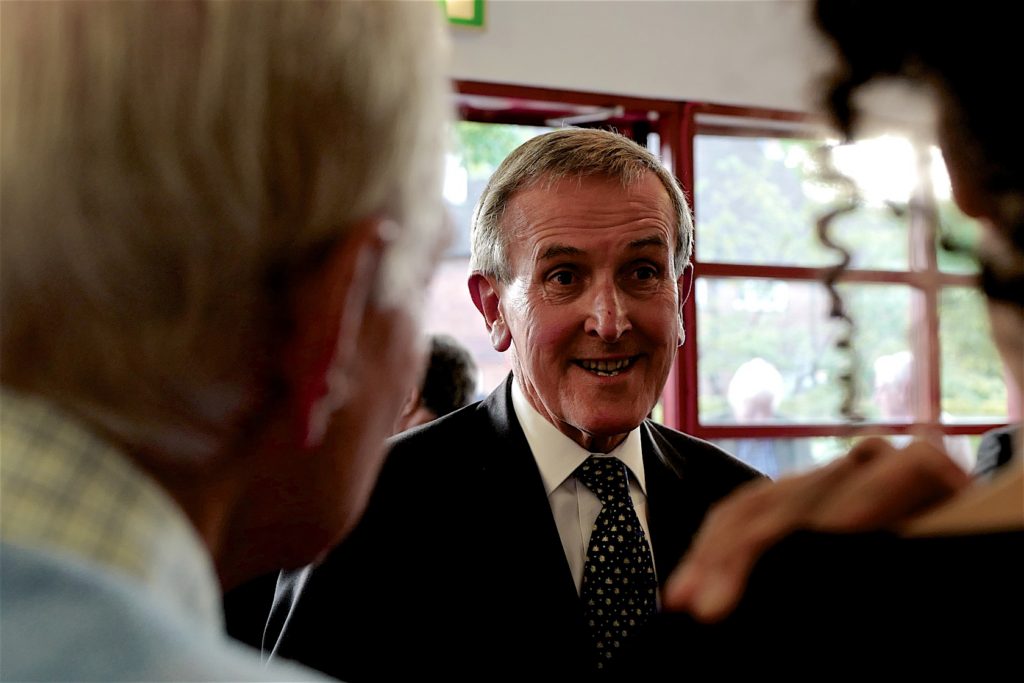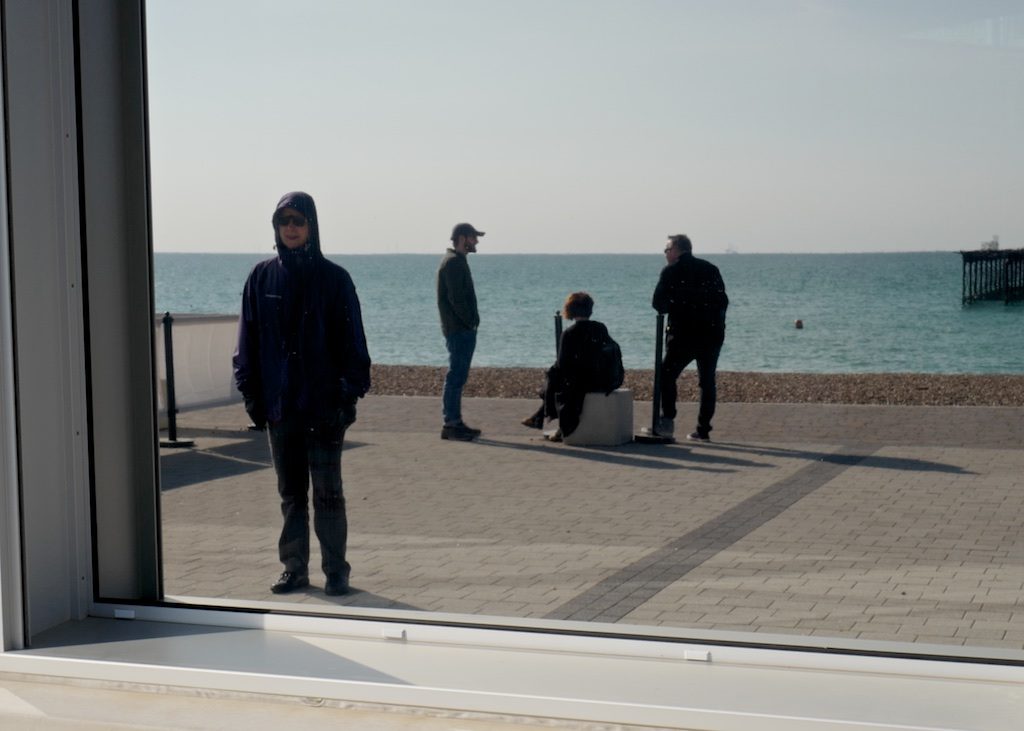Neil McGregor, former Director of the National Gallery and, later, the British Museum and now Inaugural Artistic Director of the Humboldt Forum in Berlin gave the tenth ST Lee Lecture in Wolfson tonight. His topic was “State, Faith, Violence: case studies in the coercion of belief”, and it was a riveting and deeply depressing account of humanity’s capacity for persecution of ‘the other’. He’s a terrific lecturer, with an unhurried and enthralling style. But then, if you’ve heard or read his History of the World in a Hundred Objects, you will know that.
I’m pleased with this portrait, which really captures him as he is. Bigger size here.




